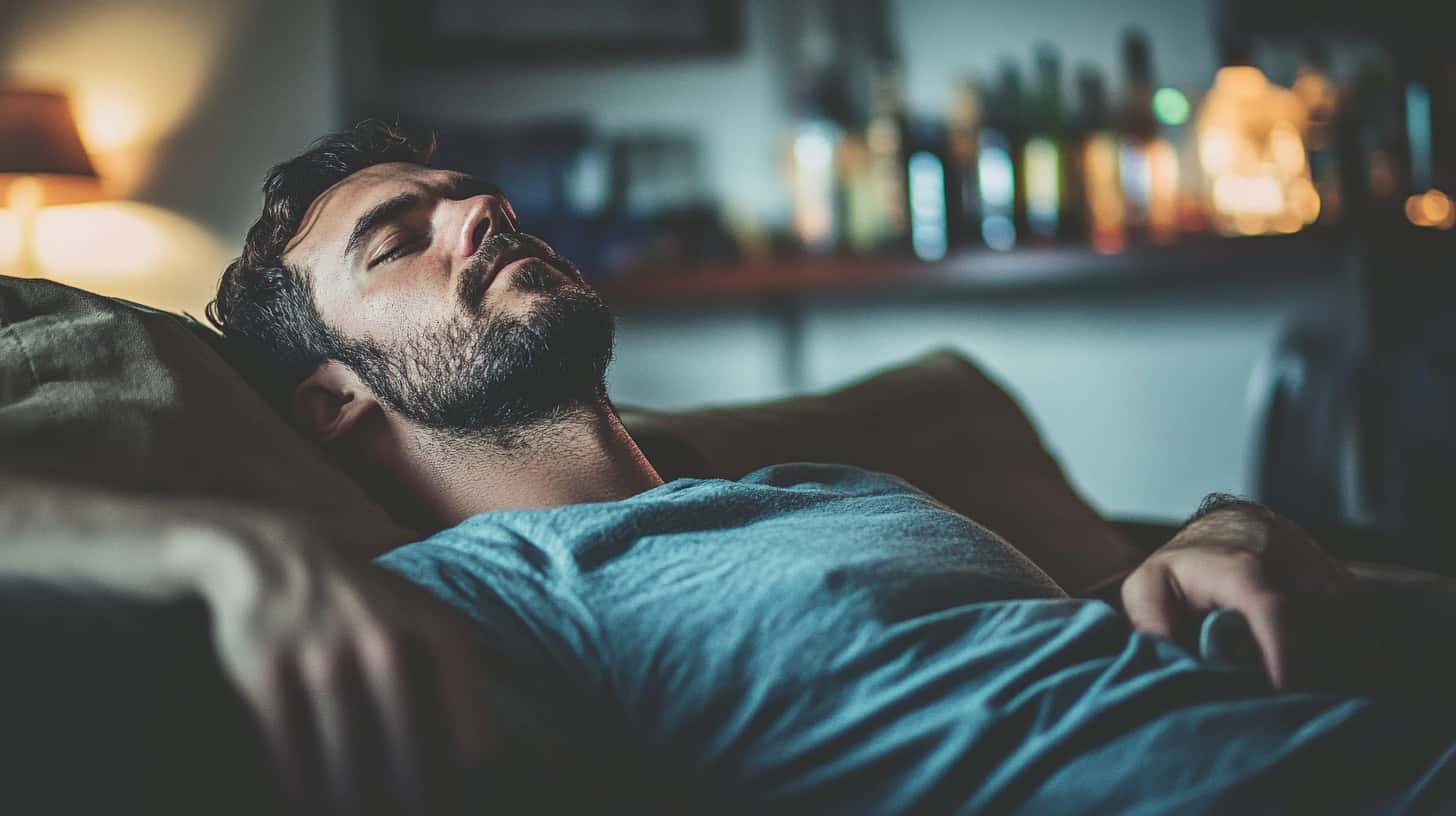Drug-induced night sweats feel like your body is staging a protest while you sleep—leaving you drenched, restless, and wide-eyed at 3 a.m. They’re not your run-of-the-mill overheated moments under too many blankets. Instead, these drug-induced night sweats often stem from chemical imbalances triggered by medications, detox, or substances that send your nervous system into overdrive.
When your body’s thermostat glitches like this, it’s not just uncomfortable—it’s worth paying attention to.
Why Are Drug-induced Night Sweats Happening?
Drug-induced night sweats can be the body’s awkward attempt to recalibrate itself. They might show up during detox, when the nervous system struggles to regain balance after dependency on substances like alcohol, opioids, or stimulants. Withdrawal often flips the fight-or-flight switch into overdrive, flooding your system with stress hormones and sweat.
Medications are frequent culprits too—antidepressants, steroids, and opioids sometimes provoke these episodes as side effects. Even seemingly harmless substances like caffeine can ramp up the sweat factor when mixed with detox symptoms or heightened anxiety.
And don’t forget mental health—stress, panic attacks, and nightmares can sneak into the mix, fanning the flames of night sweats.
When Should You Be Worried?
Not every sweaty night deserves a red flag, but patterns matter. If drug-induced night sweats keep making appearances—or come with troubling sidekicks like weight loss, fevers, or chest pain—it’s time to lean in and listen.
Here’s when to be concerned:
- Sweating paired with fevers, chills, or unexplained weight loss
- Persistent episodes that leave you feeling drained, anxious, or weak during the day
- Sweats triggered by detox, medication changes, or substance withdrawal
- Sudden or intense sweating accompanied by chest pain or shortness of breath
Your body is good at leaving clues, even if it feels like it’s speaking in riddles. Following up with a doctor or addiction treatment professional can help translate what’s going on.

Are Drug-Induced Night Sweats Dangerous?
Most drug-induced night sweats aren’t inherently dangerous—but ignoring them isn’t a good idea. At their worst, they could indicate underlying infections, hormonal shifts, or even heart problems. But for most people in addiction recovery, night sweats are more like mile markers—signs that the body is working hard to heal and stabilize.
Still, the impact is real. Night sweats can wreck sleep, drain energy, and chip away at mental health. In recovery, where sleep and stability are already delicate, these episodes can feel like one more hurdle to clear. And let’s be honest—they’re just plain exhausting.
How Do You Recover?
Recovery isn’t about perfection—it’s about progress. And night sweats don’t have to derail that progress. Here are a few ways to manage the midnight downpours:
- Hydrate, hydrate, hydrate. Sweating drains fluids fast, so keep water nearby to replenish.
- Cool your sleep space. Fans, moisture-wicking sheets, and light pajamas can make a big difference.
- Review your medications. Some drugs cause sweating as a side effect—ask your doctor if adjustments might help.
- Calm your nervous system. Therapy, mindfulness, and medication can lower stress and reduce night sweats.
- Seek professional support. Detox and medication withdrawal aren’t DIY projects—lean on trained experts for guidance.
Night sweats aren’t just a symptom—they’re a signal. Whether they’re tied to detox, medication, or anxiety, they’re often a sign that your body is working overtime to heal. The good news? You don’t have to face them alone.
Finding Answers
If drug-induced night sweats have been stealing your sleep or stirring up worry, it’s time to take the next step. Talk to someone who can help—whether it’s a doctor, therapist, or addiction treatment professional. Getting support isn’t about weakness; it’s about reclaiming strength, one night at a time.
In fact, studies estimate that up to 41% of people undergoing detox experience night sweats as part of withdrawal symptoms, often coupled with anxiety and insomnia. This isn’t just uncomfortable—it’s a sign your body is in the trenches of healing. And healing, while messy, is always worth the work.
Addiction Treatment to Address Night Sweats
A good treatment plan doesn’t just address the sweats—it looks at the whole picture: the nervous system, the hormones, the anxiety that might be humming under the surface. Comprehensive care can involve hydration therapy, guided breathing exercises, and even medications that help the nervous system step off the roller coaster. It’s about calming both body and mind.
And here’s something hopeful—most people see drug-induced night sweats improve significantly within weeks of starting treatment. So, this isn’t forever. It’s just a bump on the road to feeling whole again. If you want to talk to someone about addiction treatment options in Orange County, California, we are here to work with you or your loved one.
Please call Covenant Hills Treatment center, today: 800-662-2873.








